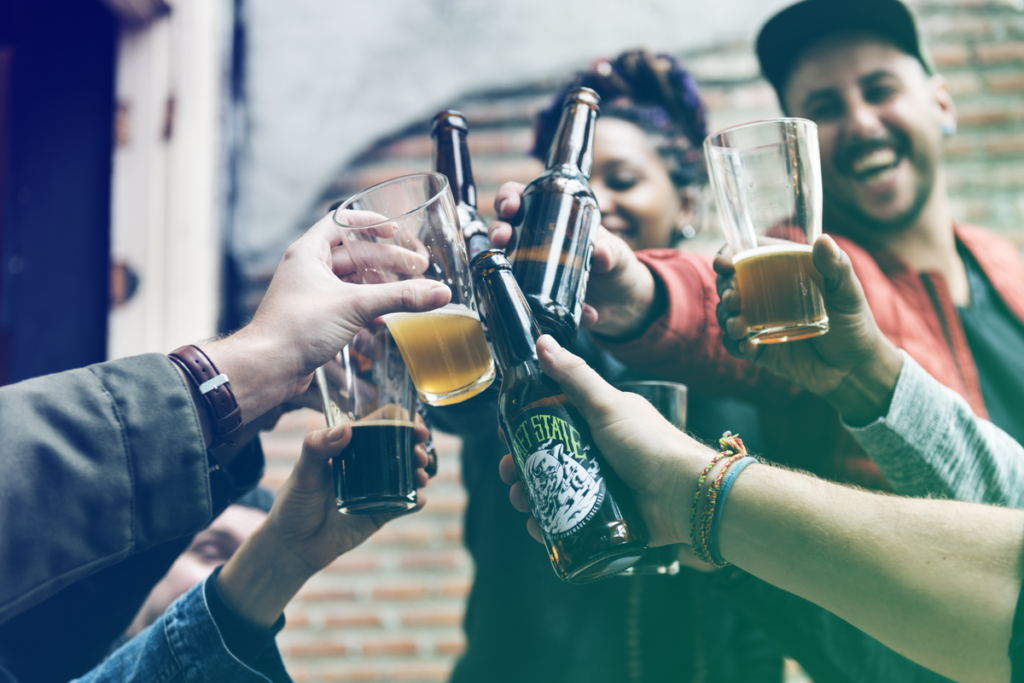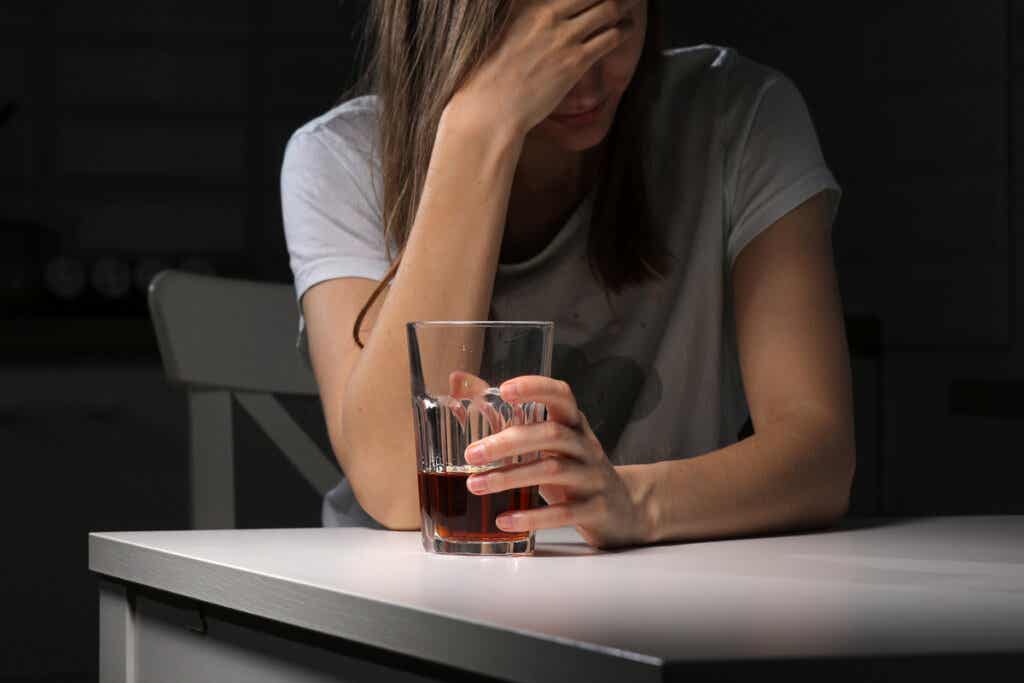(Exploring Your Mind) Drunkorexia is the restriction of calories in food to make room for calories in alcoholic beverages. It’s an eating disorder that’s especially prevalent among young people.
Related Lockdown Created 1 Million New Alcoholics in England
by Staff Writer, January 4th, 2022
Drunkorexia is an eating disorder. The drunkorexic person restricts the calories in their food to make room for calories in alcoholic beverages. In other words, they seek to control their weight to compensate for planned alcohol consumption.
In recent years, the term drunkorexia has been used to describe a new phenomenon with a high incidence in subjects aged between 18 to 26. As a matter of fact, studies indicate that 39 to 46 percent of college students report intentionally restricting and altering their eating behaviors before drinking alcohol (Giles et al. 2009; Roosen and Mills, 2015).
In general, those who manifest this type of behavior know the energy content of alcoholic beverages and try to balance their food intake to prevent an increase in their body weight. Unfortunately, maintaining this balance leads them to drastically stop eating in order to consume alcohol excessively (Martínez et al. 2014).
During alcoholic intake, the drunkorexic person eats to avoid the damage caused by alcohol on an empty stomach. However, another problem is that these foods are usually unhealthy. For example, sweets, or french fries. Therefore sufferers experience problems due to an unhealthy diet (Villarino, 2012).

Drunkorexia: components and main activities
Drunkorexia has three main aspects. These are alcohol use or abuse, restriction of food intake, and excessive physical activity. A sufferer from this condition will:
- Count their daily calorie intake to ensure that they don’t gain weight while consuming alcohol.
- Skip meals to conserve calories so they can consume alcoholic beverages.
- Exercise excessively to offset the calories they consume from alcoholic beverages.
- Consume an extreme amount of alcohol in order to vomit previously eaten food.
What problems can drunkorexia cause?
It’s extremely risky to reduce the calories in food in favor of the calories that alcoholic beverages provide. Furthermore, these risks can be compounded by the combination of eating disorders and heavy alcohol use. The problems that are derived from these behaviors are the following:
- Drinking on an empty stomach can lead to an unexpected degree of intoxication. This inhibits judgment and increases the risk of physical injury.
- The metabolism of alcohol increases the need for certain nutrients. However, restricting food intake reduces their availability. This combination increases the risk of nutrient deficiencies.
- Drinking alcohol after exercising inhibits protein synthesis and muscle repair. This slows down the recovery process and minimizes potential improvements in fitness.
- Drinking alcohol can lead to a tendency to engage in unhealthy eating behaviors.
- Women who restricted their calories in this manner were more likely to report memory loss, injury, abuse, and unprotected sex when drinking. Men were more likely to get into a physical fight (Giles et al. 2009).

Population at risk
In a study that examined calorie restriction among freshmen before planned alcohol consumption, it was found that 99 out of 695 (14 percent) of freshmen reported restricting calories before drinking. Six percent claimed this behavior was to avoid weight gain and ten percent said it was to speed up the effects of alcohol (Burke et al. 2010).
In a survey of 107 college students, it was found that 59.8 percent who reported drinking alcohol also reported self-induced vomiting after drinking. Participants who reported self-induced vomiting also said they experienced more symptoms of bulimia nervosa, as well as depression (Blackmore & Gleaves, 2013).
In another survey of 1000 college students, it was found that 14 percent of students restricted calories before alcohol consumption (25 percent of women and 11 percent of men). Nine percent did it to avoid gaining weight and four percent to get drunk faster. Out of this 14 percent who restricted their calories, 64 percent did it to avoid weight gain, 25 percent to get drunk faster, and two percent due to peer pressure (Osborne, Sher, and Winograd, 2011).
Further research
In Australia, following along the same lines of research, another study was conducted with 139 undergraduate university students between the ages of 18 and 29. They completed the Compensatory Eating and Behaviors in Response to Alcohol Consumption Scale (CEBRACS) self-report to detect the symptoms of drunkorexia.
The results showed that more than 79.1 percent of the participants reported participating in drunkorexic behaviors. The analysis showed that excessive alcohol consumption, the social norm of thinness, and the social norm of drinking were positively related to these behaviors (Knight & Simpson, 2013).
Previous research suggests that college students are a population at risk for drunkorexia. This may be due to social pressure to consume, social standards of beauty, a coping mechanism against anxiety and depression, or one in response to college stress.
Support this site so we can continue to tell you the truth.DONATE HERE
Stillness in the Storm Editor: Why did we post this?
The news is important to all people because it is where we come to know new things about the world, which leads to the development of more life goals that lead to life wisdom. The news also serves as a social connection tool, as we tend to relate to those who know about and believe the things we do. With the power of an open truth-seeking mind in hand, the individual can grow wise and the collective can prosper.
– Justin
Not sure how to make sense of this? Want to learn how to discern like a pro? Read this essential guide to discernment, analysis of claims, and understanding the truth in a world of deception: 4 Key Steps of Discernment – Advanced Truth-Seeking Tools.
Stillness in the Storm Editor’s note: Did you find a spelling error or grammatical mistake? Send an email to [email protected], with the error and suggested correction, along with the headline and url. Do you think this article needs an update? Or do you just have some feedback? Send us an email at [email protected]. Thank you for reading.
Source:
https://exploringyourmind.com/drunkorexia-what-is-it/
Support our work! (Avoid Big Tech PayPal and Patreon)DIRECT DONATION

Leave a Reply